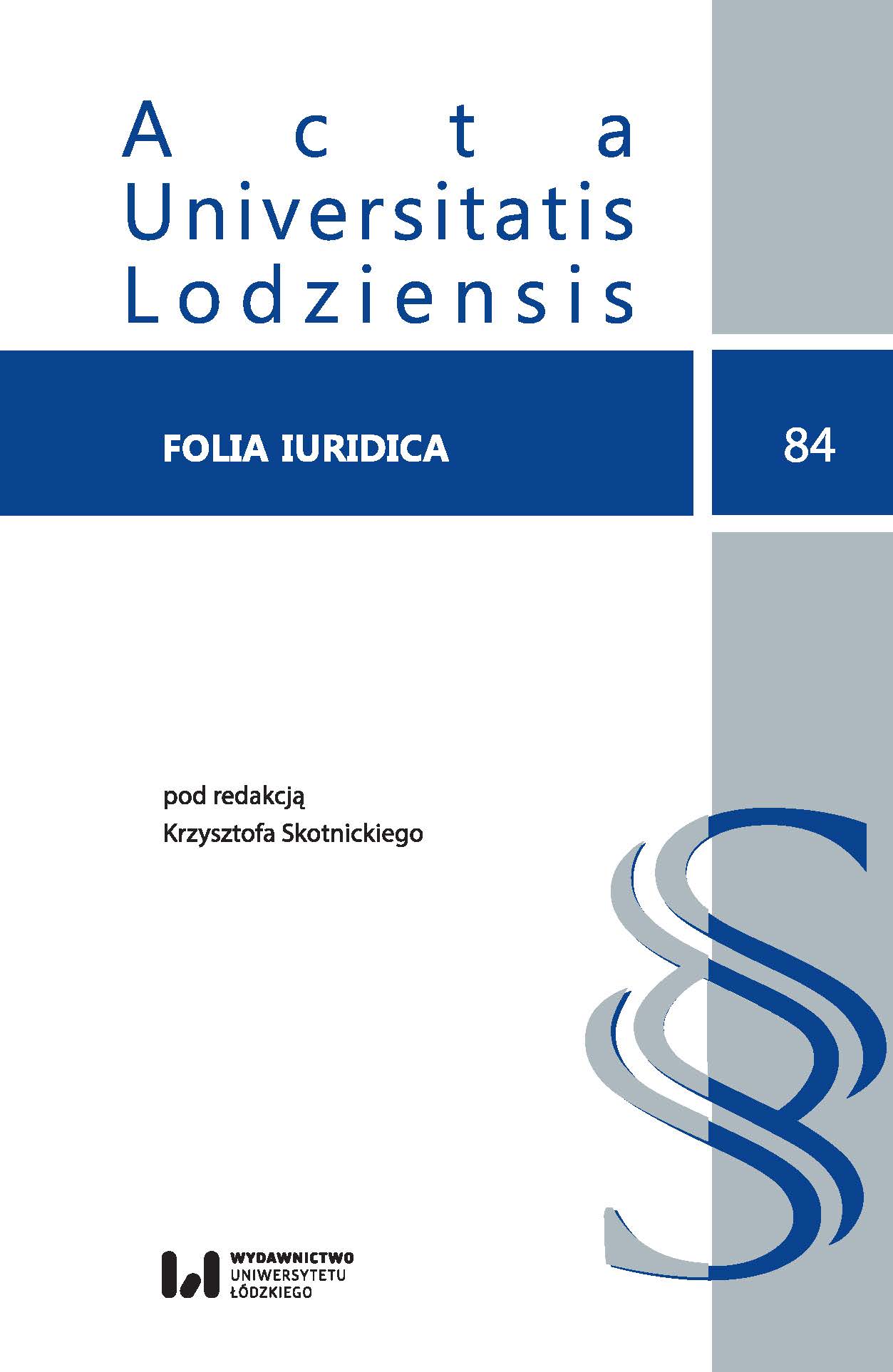Prezydencja Republiki Czeskiej w pierwszym półroczu 2009 roku jako przykład skutecznego zarządzania Unią Europejską
DOI:
https://doi.org/10.18778/0208-6069.84.09Słowa kluczowe:
Republika Czeska, prezydencja w Radzie Unii Europejskiej, zarządzanie Unią Europejską, prezydencja Republiki CzeskiejAbstrakt
W artykule przedstawiono zalety i wady czeskiej prezydencji w Radzie Unii Europejskiej (styczeń–czerwiec 2009 r.). Prezydencja czeska była jedną z najciekawszych prezydencji ostatnich lat. Republika Czeska była dopiero drugą (po Słowenii) prezydencją państwa z grupy krajów, które przystąpiły do Unii Europejskiej podczas „wielkiego rozszerzeniaˮ w 2004 roku. Prezydencja czeska rozpoczęła w bardzo trudnym dla Unii czasie (tj. głębokiego kryzysu gospodarczego w większości państw członkowskich UE, konfliktu gazowego między Rosją i Ukrainą, wojny w Gruzji, wyborów prezydenckich w USA, braku ratyfikacji traktatu lizbońskiego). Co więcej, w Republice Czeskiej panowała bardzo skomplikowana wewnętrzna sytuacja polityczna, w tym dymisja czeskiego rządu w połowie czeskiej prezydencji UE i eurosceptycyzm prezydenta Klausa. Jednak prezydencja czeska zasługuje na pozytywną ocenę. Z punktu widzenia administracji prezydencja była bardzo dobrze przygotowana, choć w momencie obalenia rządu w czasie prezydencji czeska klasa polityczna poniosła porażkę. Republika Czeska okazała się państwem członkowskim Unii Europejskiej, które dostrzega nowe wyzwania stojące przed UE i rozumie jej filozofię i mechanizmy. Czesi przyjęli perspektywę unijną i wykazali znacznie większe zrozumienie dla wspólnych ideałów niż państwa członkowskie o znacznie dłuższym członkostwie i znaczącej pozycji politycznej.
Pobrania
Bibliografia
Czyżniewski, Marcin, Witkowska-Chrzczonowicz, Katarzyna. 2011. Prezydencja Republiki Czeskiej w Radzie Unii Europejskiej. Studium prawno-politologiczne. Warszawa: Wydawnictwo Sejmowe.
Google Scholar
Łada, Agnieszka. Partnerstwo dla Prezydencji? Współpraca administracji z sektorem pozarządowym podczas czeskiej Prezydencji w Radzie Unii Europejskiej – wnioski dla Polski. Raport z badań Instytutu Spraw Publicznych dostępny na stronach internetowych Instytutu Spraw Publicznych, http://www.isp.org.pl/files/20174315650396766001260455529.pdf.
Google Scholar
Palata, Lubosz. 2009a. „Topolanek padł w Pradzeˮ. Gazeta Wyborcza 71.
Google Scholar
Palata, Lubosz. 2009b. „Czesi mają rząd, a Europa prezydencjęˮ. Gazeta Wyborcza 108.
Google Scholar
Słojewska, Anna. Vaclav Klaus: w Unii jak za komunizmu, http://www.rp.pl/artykul/36,265790_Vaclav_Klaus__w_Unii_jak_za_komunizmu.html.
Google Scholar
Smoczyński, Wawrzyniec. 2008. „Po kostki w Unii”. Polityka 50 (2684): 78–80.
Google Scholar
http://www.europarl.europa.eu/news/expert/infopress_page/004-46092-012-01-03-901-20090113IPR46091-12-01-2009-2009-false/default_pl.htm.
Google Scholar
http://zpravy.idnes.cz/tiskni.asp?zahranicni&c=A081216_122559_zahranicni_stf.
Google Scholar
www.archiwum.isp.org.pl.
Google Scholar
Pobrania
Opublikowane
Jak cytować
Numer
Dział
Licencja

Utwór dostępny jest na licencji Creative Commons Uznanie autorstwa – Użycie niekomercyjne – Bez utworów zależnych 4.0 Międzynarodowe.














